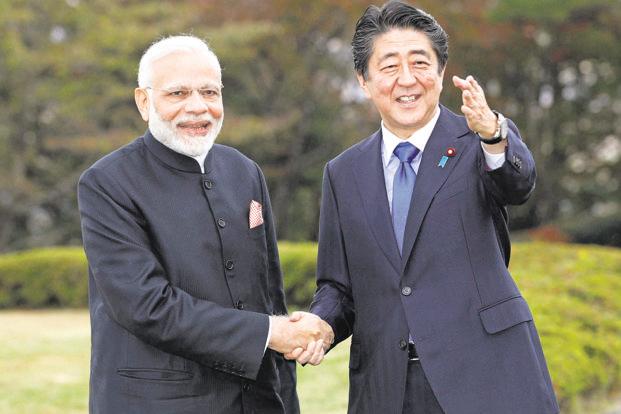Japan, India’s all-weather ally, has said that it will not join the China-led RCEP if India doesn’t join the free trade deal. Japan fears that if a resurging power like India, which is capable of balancing China, is not part of the pact, the free trade block will be completely dominated by the dragon.
“We aren’t thinking about that at all yet,” Deputy Minister for Economy, Trade and Industry Hideki Makihara, said in an interview with Bloomberg. “All we are thinking of is negotiations including India.”
The Pacific island nation also has India’s best interest in mind, given PM Modi’s personal friendship Japanese Prime Minister- Shinzo Abe.
“It is meaningful from the economic, political and potentially the national security point of view,” Makihara said of the inclusion of the world’s largest democracy in the pact. “Japan will continue to try to persuade India to join.”
The RCEP negotiations started in November 2012 and so far there have been 27 rounds of negotiations. The 7th RCEP Ministerial Meeting in Bangkok took place on 8 September 2019 and Indian concerns remained unaddressed.
India had very solid reasons to back off from China-led RCEP. The member countries of RCEP include ten member states of the Association of Southeast Asian Nations (ASEAN)- Brunei, Cambodia, Indonesia, Laos, Malaysia, Myanmar, the Philippines, Singapore, Thailand and Vietnam, and 6 Asia-Pacific countries Australia, China, India, Japan, South Korea and New Zealand. Out of the 15 member countries, India already has trade deals with ASEAN (10 countries), Japan and South Korea.
The only countries whose market access India would get are- Australia, New Zealand and China. The government is already working on bilateral trade deals with New Zealand and Australia. India is not interested in signing a free trade deal with China as China already has $53 billion trade deficit.
Indian businesses worry that they will lose due to the new trade deal because companies from RCEP member countries could offer cheaper products which will ultimately hurt their sales and profits. A $53 billion trade deficit with China is a major concern for the policymakers in the country, businessmen and policymakers also worry that India could be a dumping ground for Chinese exports as the United States shuts the door for them.
Therefore, India wanted Import cap for China which means India would have been free to raise tariffs on Chinese products but the member countries did not agree to the Indian demand.
India wanted more trade in services and preferential treatment to the Indian services sector. This would have meant that Indian workers in the IT sector, medical professionals and teachers could easily migrate to member nations and work there but China did not agree to these demands.
Japan is aware of the fact that China, given its economic might, will be an undisputed leader of RCEP if India does not join. The only country in the proposed block which could balance the trade influence of China is- India.
As India’s concerns were unaddressed, PM Modi announced that the country is not ready to join the deal, as of now. With Japan on the Indian side, China will be forced to address Indian concerns and make the country member of the multilateral deal.
